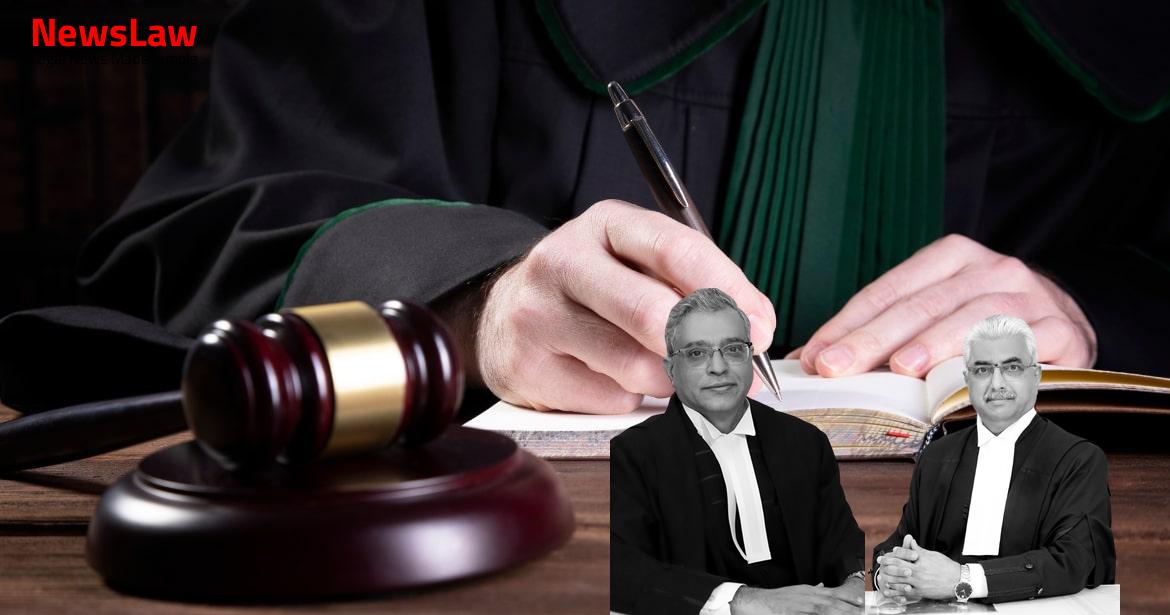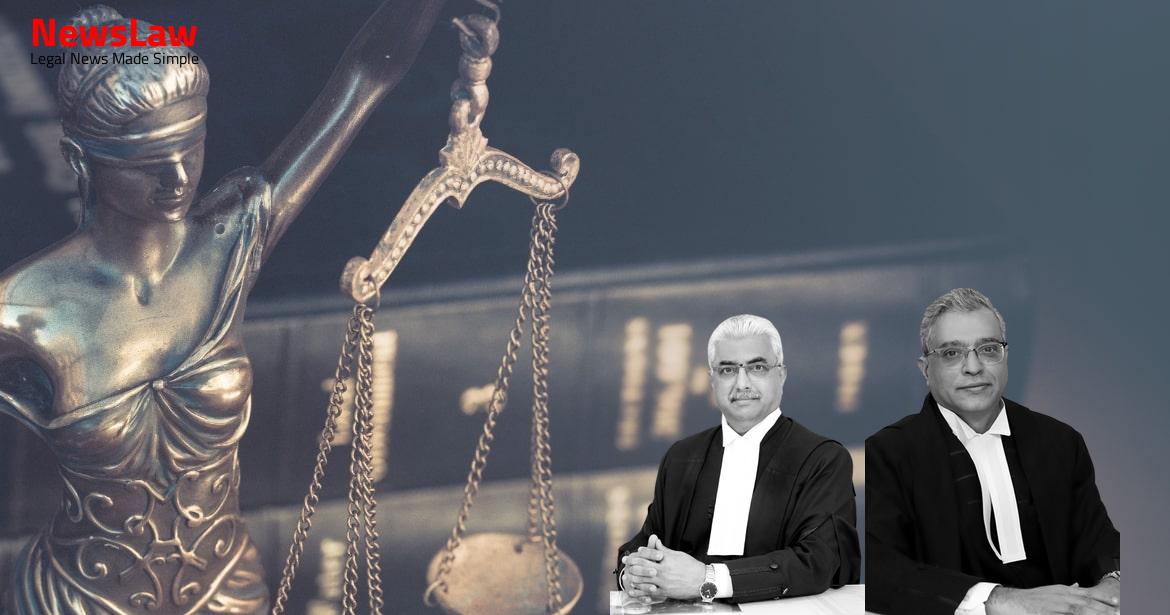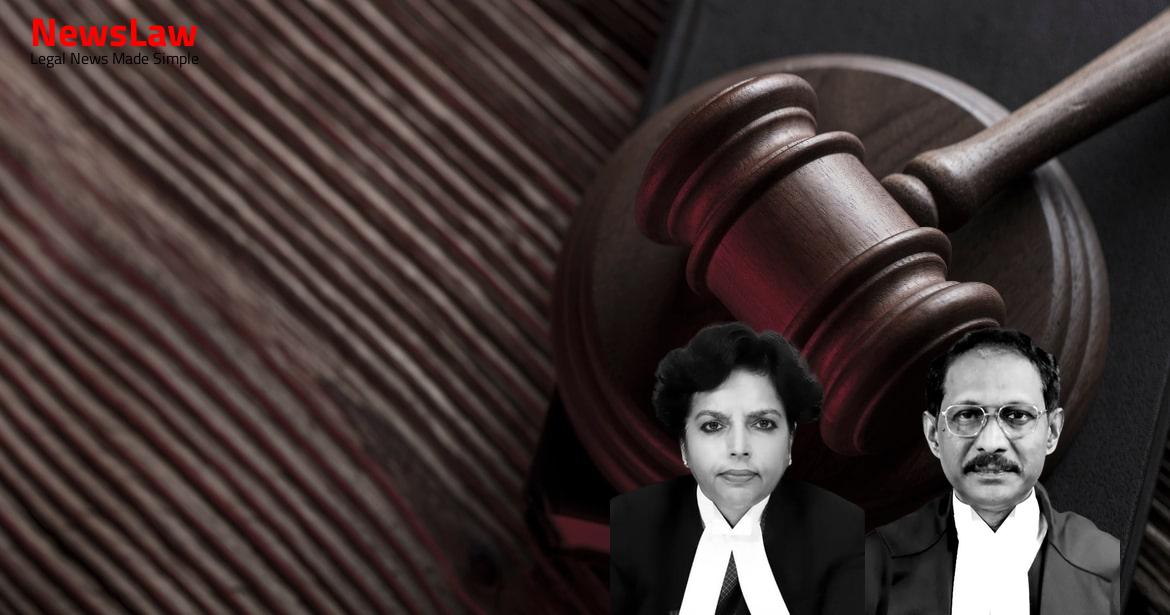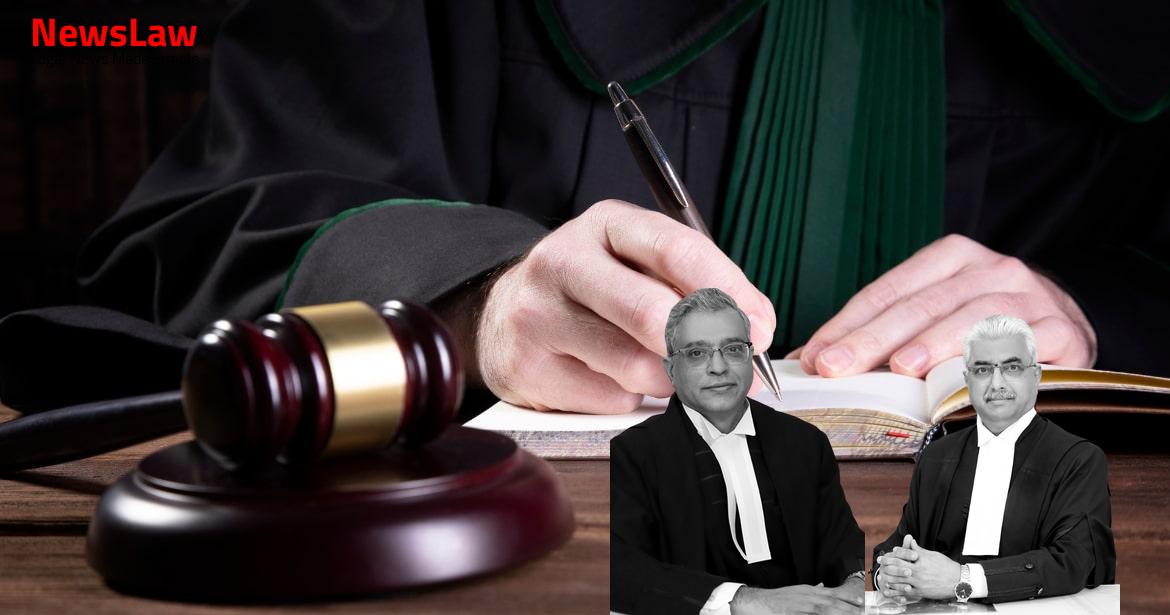In a significant legal battle, the Supreme Court of India deliberated on the case of Kolkata Municipal Corporation v. Mr. Birinchi Bihari Shah concerning the acquisition of property under Section 352 of the Kolkata Municipal Corporation Act. The judgment shed light on the powers of the Corporation to acquire land for public purposes and the associated legal intricacies. The case holds importance in clarifying the scope and limitations of land acquisitions under specific provisions of the Act.
Facts
- The appellant-Corporation attempted to acquire the Property under Section 352(a) of the Act without the power of compulsory acquisition.
- The learned single Judge quashed and set aside the alleged action of acquisition.
- Both the appellant-Corporation and Respondent No. 1 challenged the single Judge’s order in writ appeals.
- The Division Bench upheld the single Judge’s order and directed the appellant-Corporation to initiate acquisition proceedings under Section 536 or 537 of the Act within five months.
- Alternatively, the appellant-Corporation was instructed to restore the name of the last recorded owner as the owner of the Property.
- Consequently, the appellant-Corporation has appealed against the Division Bench’s judgment stating the absence of compulsory acquisition power under Section 352.
- The appellant-Corporation acknowledged in a letter in 2000 that there were no outstanding dues regarding property tax.
- The High Court permitted the appellant-Corporation to conduct an enquiry about encroachments and prohibited any construction on the property.
- The property, Premises No 106C, Narikeldanga North Road, Kolkata – 700011, belonged to Mr. Birinchi Bihari Shah through a deed of settlement from his father.
- In 2009, the appellant-Corporation tried to forcefully occupy the property, but Mr. Shah filed a writ petition restraining them.
- The High Court ruled in favor of Mr. Shah, restraining the appellant-Corporation from interfering with his possession.
- Mr. Shah’s name was wrongly removed from the owner category in official records in 2010.
- A writ petition in 2016 sought to quash the illegal acquisition and restore Mr. Shah’s ownership in official records.
- The High Court approved the writ petition in 2017, directing the appellant-Corporation to vacate the property and restore Mr. Shah’s ownership.
- It was found that the appellant-Corporation failed to establish its rights and title to the property.
- A writ appeal was filed by the appellant-Corporation against the High Court’s decision, citing misplaced records as a reason for not filing the affidavit-in-opposition.
- After remand, the appellant-Corporation claimed the land was acquired, leading to a further writ petition by Mr. Shah to correct entries and prevent interference with his possession.
Also Read: United India Insurance Co. Ltd. v. Contractors of NH-76 Bridge Construction Project
Issue
- The second issue in the judgment concerns the legality and validity of the acquisition of the Property under Section 352 of the Kolkata Municipal Corporation Act, 1980.
- The judgment examines whether the acquisition of the Property was in compliance with the provisions of Section 352 of the Act.
- It delves into the process followed for the acquisition and assesses whether it met all legal requirements.
- The validity of the acquisition under this specific section is a significant point of contention in the case.
- The court scrutinizes the legality of the acquisition in relation to the powers granted under Section 352 of the Kolkata Municipal Corporation Act, 1980.
Also Read: Union of India vs. Mrityunjay Kumar Singh: Understanding the Bail Decision
Arguments
- Mr. Jaideep Gupta, representing the appellant-Corporation, argued that the Corporation has the power to compulsorily acquire land under Section 352 of the CMC Act, 1980 for constructing a park.
- He referred to Section 363 of the Act which provides for compensation for such acquisitions.
- Citing the State of Kerala v. T.M. Peter case, he emphasized that different compensation structures for different acquisition purposes do not violate Article 14 of the Constitution.
- The Municipal Authorities had doubts about the statutory authority of the Corporation to exercise such sovereign power, leading to seeking a legal opinion from a Senior Advocate.
- The Senior Advocate expressed doubts and highlighted anomalies in exercising such powers.
- The Chief Municipal Officer remarked that Section 537 of the Act is not the only provision for acquisition, disagreeing with the High Court’s conclusion.
- The respondents, represented by Mr. Mukul Rohatgi and Mr. Huzefa Ahmadi, argued in support of the High Court’s judgment, stating that the power of acquisition lies solely in Section 537 of the Act.
- They contended that the invocation of Section 352 along with Section 363 is illegal and violates Article 300A of the Constitution.
- In their arguments, they relied on the precedent set by the court in the case of Nagpur Improvement Trust v. Vithal Rao.
- They emphasized the scheme of the Kolkata Municipal Corporation Act, 1980, particularly highlighting Chapter XXXIII related to the Acquisition and Disposal of Property.
- The respondents pointed out the provisions of Section 352 of the Act, which grant powers to the Municipal Commissioner for acquiring lands and buildings for public use like streets, parks, and parking places.
- They also mentioned Section 363 of the Act, which deals with the payment of compensation to the owners of acquired property.
- By analyzing the text and context of Section 352 in conjunction with its placement in the Act, they clarified the purpose and objective of the provision.
Also Read: Consumer Forum Decision on Commercial Purpose: Shriram Chits vs. Raghachand Associates
Analysis
- The constitutional discourse on compulsory acquisitions has traditionally been rooted in the ‘power of eminent domain’
- Seven sub-rights have been identified as foundational components of the right to property under Article 300A
- These sub-rights include the right to notice, the right to be heard, the right to a reasoned decision, the duty to acquire only for public purpose, the right to fair compensation, the right to an efficient and expeditious process, and the right of conclusion
- Non-compliance with any of these sub-rights renders the law susceptible to challenge
- Procedures such as notice, hearing objections, and communicating the decision play a crucial role in compulsory acquisitions
- The right to fair compensation is integral and cannot be the sole basis for justifying compulsory acquisition
- Judicial review is essential to ensure that acquisitions are for public purpose and lawful
- The State’s duty to restitute and rehabilitate, conduct the acquisition process efficiently within timelines, and complete the process by vesting the property are emphasized
- The importance of a reasoned decision and adherence to statutory frameworks for acquisition timelines are highlighted
- An efficient process is necessary to prevent delays and ensure fairness in acquisitions
- Compulsory acquisition must be justifiable on the grounds of public purpose and subject to payment of fair compensation
- The interdependence of the sub-rights in the constitutional net of property rights is stressed
- Section 352 of the Act does not provide the power of acquisition, but rather the power and duty of the Municipal Commissioner to identify land for public purposes.
- Upon deciding to acquire land for public purposes under Section 352, the Municipal Commissioner must follow the process outlined in Sections 535, 536, and 537 of the Act.
- Section 535 states that the Corporation has the power to acquire and hold movable and immovable property.
- Section 536 allows the Municipal Commissioner to acquire property by agreement on behalf of the Corporation.
- Section 537 provides for the procedure of compulsory acquisition of immovable property on behalf of the Corporation by the State Government.
- The context of Section 352 in Chapter XXI of the Act clarifies that it relates to the vesting of public spaces in the Corporation, not the power of acquisition.
- The law under Article 300A must align with the principles of rule of law
- It should be just, fair, and reasonable
- The judgment emphasizes on the importance of these principles in Article 300A cases
- The action of acquiring property under Section 352(a) of the Act is deemed illegal, invalid, and against the provisions of the Act.
- The High Court’s decision to allow the writ petition and reject the Corporation’s case for land acquisition under Section 352 was justified.
- There is no room for interference in the impugned judgment.
- The appeal arising from SLP (C) No. 4504 of 2021 filed by the Corporation against the High Court’s judgment in APO No. 523 of 2017 is dismissed.
- The Corporation is directed to pay costs of Rs. 5,00,000 to the concerned party within sixty days from the date of the judgment.
Case Title: KOLKATA MUNICIPAL CORPORATION Vs. BIMAL KUMAR SHAH (2024 INSC 435)
Case Number: C.A. No.-006466-006466 – 2024



